Happy May Day! It feels like May is the official kickoff to summer gardening season, even though the official first day of summer isn’t until June. You will start to see more of an abundance of fruits and veggies at your local farmer’s market, along with beautiful bouquets of wildflowers. Seasonal eating is what our ancestors had no choice but to do, until we learned how to safely preserve most foods, and our body’s needs have evolved around the foods that were available to us. Although we no longer need to rely on what we can grown in our gardens, it is still nice to be aware of what fruits and vegetables are in season this time of year. I hope you enjoy my May Produce Guide!
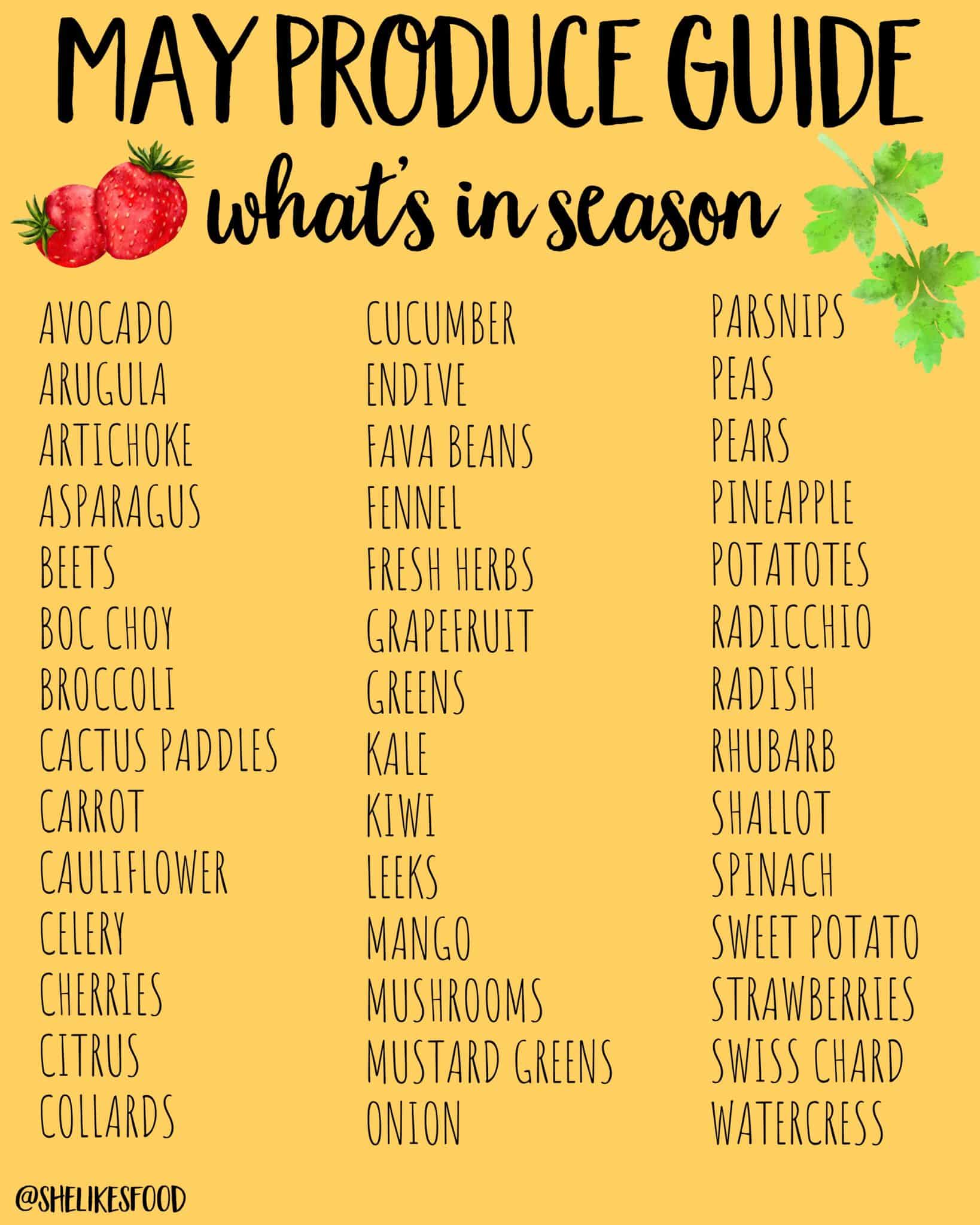
Welcome to my May Produce Guide! I still consider May to be mostly a spring season month, while also being the beginning of summer gardening. The first official day of summer isn’t until June 20th but the weather is starting to warm up. I will finally be able to plant my tomatoes, zucchini and squash this month and can’t wait to dive into garden season!
Also, keep in mind that different areas of the country have different growing seasons, so what is in season here may not be what is in season where you live. We have a very short growing season in the high desert, which means that most people aren’t planting things like tomatoes and zucchini until mid-late May.
Below I’ve highlighted a few of my favorite early summer produce and I’ve linked to a few recipes that will give you ideas of how to enjoy them!
MAY PRODUCE GUIDE
ARUGULA
Arugula, or Rocket, belongs in the mustard family and is commonly used as a salad green. It has a nice, fresh peppery taste and a little can go along way in some recipes.
I prefer to use arugula raw, in salads or wraps, but it can be wilted down and served warm, similarly to spinach or kale. I didn’t really enjoy arugula for a long time, due to it’s slightly bitter, peppery taste, but recently I’ve grown to really enjoy it. It’s a salad green, but with more flavor than some others.
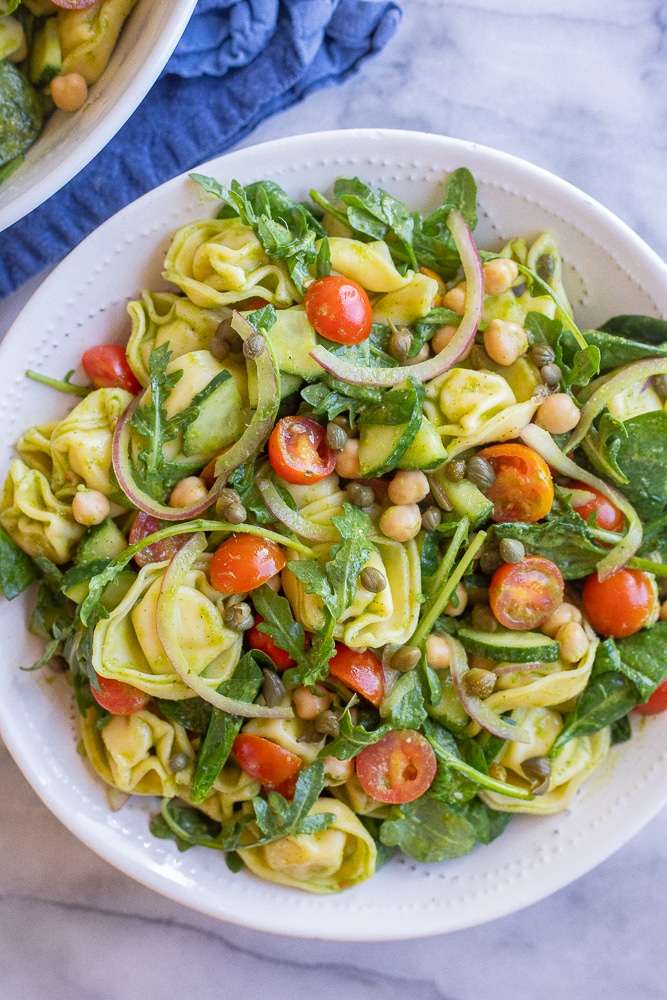
Arugula Tortellini Salad with Garlic Herb Dressing
Basil and Roasted Garlic Flatbread with Arugula
Tahini Balsamic Pasta Salad with Arugula
Balsamic Sweet Pepper and Boursin Sandwiches
Roasted Carrot and Chickpea Salad with Arugula
BEETS
Beets are root vegetables that come in a couple of different colors. Most people are familiar with red beets which have a very vibrant color, but there are also golden beets that are a little more mild in flavor. You can eat the beet greens as well!
Beets are high in phytonutrients, which are nutrients found in certain foods that can help keep your body healthy and prevent disease. They are also high in antioxidants, which have anti-inflammatory properties. Excess inflammation inside the body can lead to auto-immune issues and other diseases.
Beets can be enjoyed both raw and cooked. I like to add them raw to salads, like the one below. Beets can also be pickled, steamed or roasted. They have an earthy flavor that is slightly sweet.
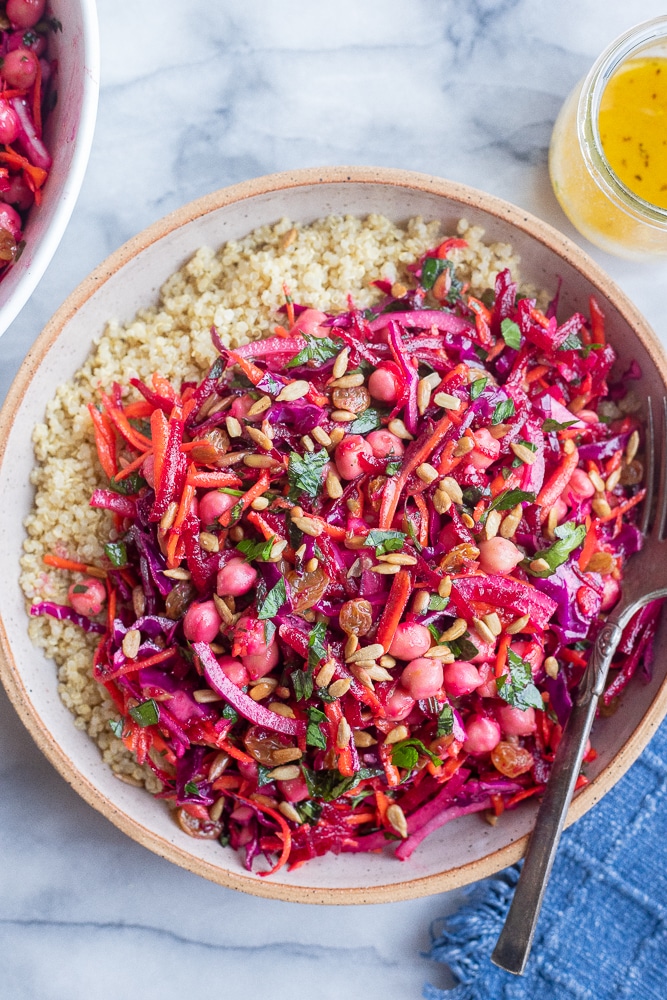
Beet and Carrot Salad with Chickpeas
Goat Cheese Beet and Balsamic Puff Pastry Bites
Vegan Beet Burgers with Brown Rice
Roasted Beet Chickpea and Black Rice Bowls
Healthier Chocolate Cupcakes with Raspberry and Beets
BROCCOLI
Broccoli is a cruciferous vegetable that is in the mustard family, along with cabbage, Brussels sprouts and kale. There are a few different varieties of broccoli, but Calabrese is the most common one in the United States and probably the one that most of us use.
Broccoli is a powerhouse vegetable that offers tons of health benefits. Broccoli is packed with tons of antioxidants, which help reduce unwanted inflammation inside the body. Broccoli also contains a large amount of both fiber and vitamin C. One cup of broccoli has about as much vitamin C as an orange.
Broccoli can be enjoyed both raw and cooked. I like chopping raw broccoli into bite sized pieces and adding it to salads. If you prefer your broccoli cooked, you can steam it, roast it or stir fry it.
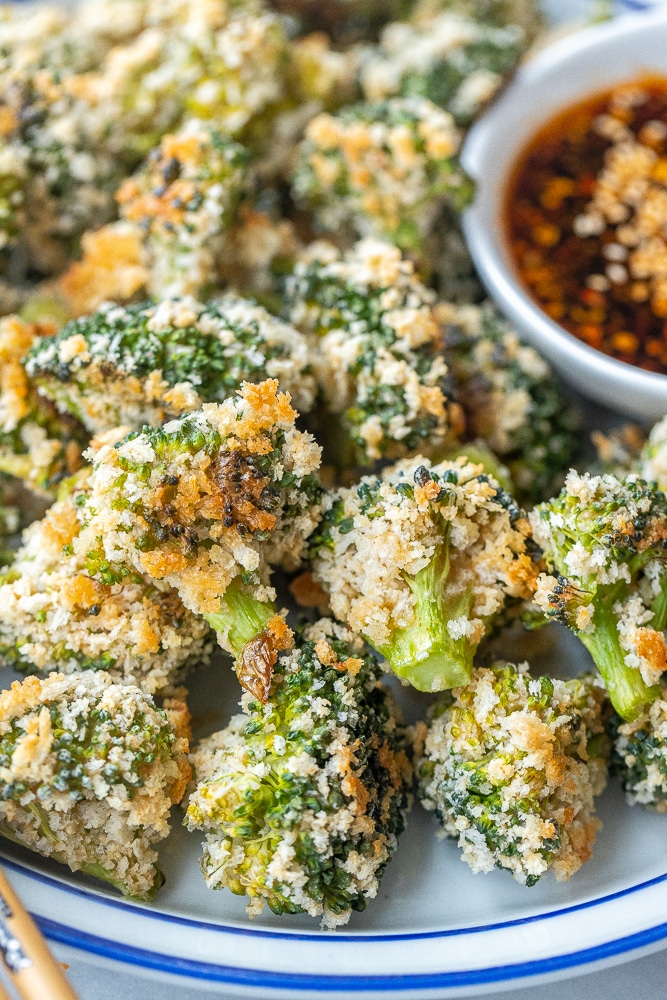
Chili Garlic Broccoli with Chickpeas
Crunchy Broccoli Salad with Maple Mustard Dressing
Veggie Packed Broccoli Cheddar Soup
Crunchy Baked Broccoli with Spicy Soy Sauce
Cheesy Broccoli Rice Casserole Bites
CARROTS
Carrots are springtime root vegetables that are pretty easy to grow. Orange carrots are most comply seen and sold at the grocery store, but you can also grow rainbow colored carrots. Carrots come in different sizes, some are short and fat, while others are long and thin. Baby carrots, however, are not an actual carrot variety, instead they are made with a machine using regular sized carrots.
I love to snack on raw carrots or add them to salads and wrap. Carrots can also be roasted, sautéed, cooked into soup or baked into cakes or muffins. They are a very versatile vegetable that can be used in both sweet and savory recipes. Carrots are probably most eaten raw, with ranch or hummus, in the US though!
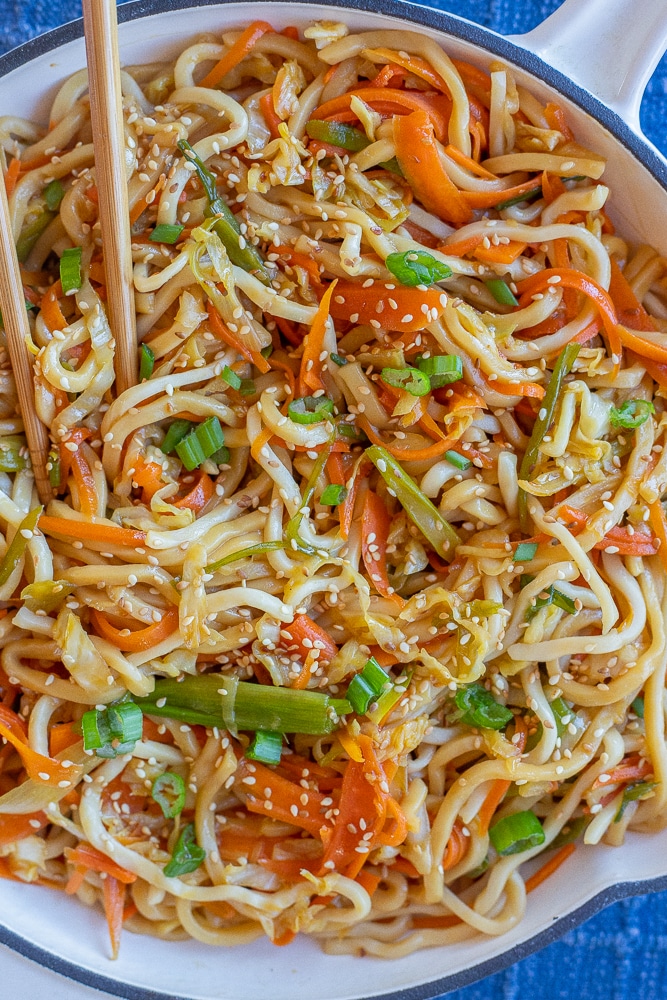
Carrot and Chickpea Salad with Orange Maple Dressing
Roasted Carrot and Dill Hummus
Noodles with Cabbage and Carrots
Curried Sweet Potato Carrot and Red Lentil Soup
FRESH HERBS
Fresh herbs can be a mix of annuals and perennials. Herbs like Basil and cilantro need to be replanted each year, but sage, thyme, lavender and mint will all grow back, year after year. Fresh herbs are less potent than their dried counterparts and I use them all the time to add flavor and color to my recipes.
Fresh herbs are always great to have on hand to use as a colorful garnish for pastas, salads and soups or they can be used as more of a main ingredient. Pesto is one of my favorite things to make when I have extra fresh herbs on hand and can even be made with herbs besides basil, like mint or cilantro.
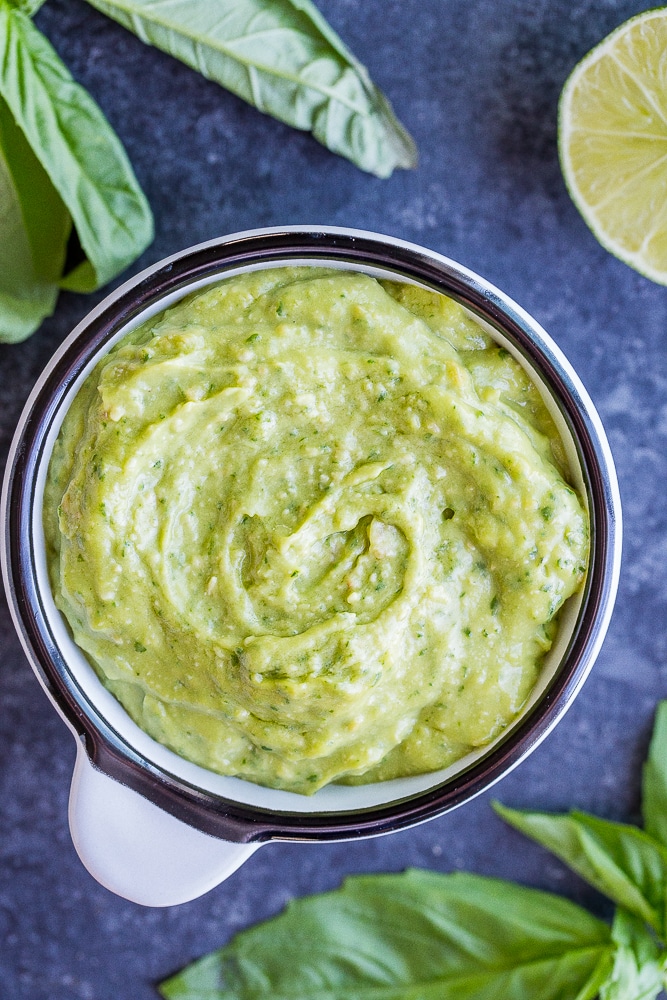
Herby Cucumber Salad with Feta and Chickpeas
Cilantro Lime Cucumber Salad with Avocado
KALE
Kale comes in a few different varieties including: curly, lacinato and purple. Kale is a hearty green that can withstand colder temperatures. Baby kale has also become quite popular these days and is still hearty, but a little more similar to baby spinach or lettuce.
Kale can be enjoyed both cooked and raw. I love massaging raw kale and adding it to salads. It’s hearty and has some texture, while also being refreshing. Kale wilts quickly, so it can easily be thrown into soups, stir fry and pastas.
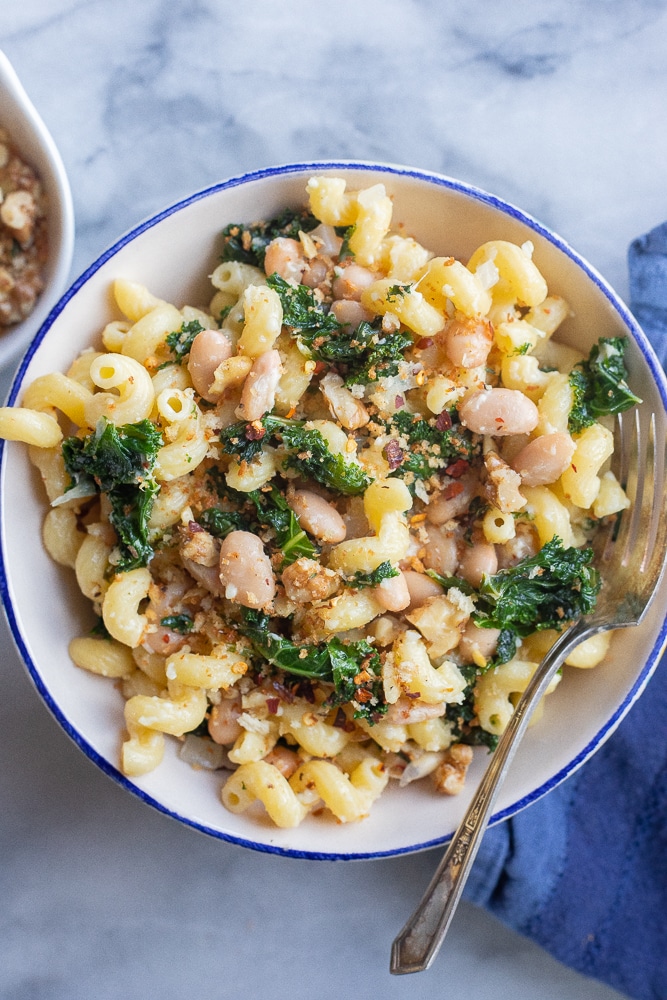
Chopped Kale Power Salad with Lemon Tahini Dressing
Kale and White Bean Pasta with Parmesan
Garlicky Kale with White Beans and Lemon
LEMON
Lemons are citrus fruits that happen to be in season during the winter. I always make sure to have lemons around in the kitchen and add them to everything from salads, to soups, to pastas. They add a tangy freshness that is always great for balancing rich flavors.
I love having lemons around for easy squeezing into water, onto salads or into sauces. Lemons can be the main flavor of your recipe, and go really well in desserts, or you can use them as a seasoning used to brighten your meals up.
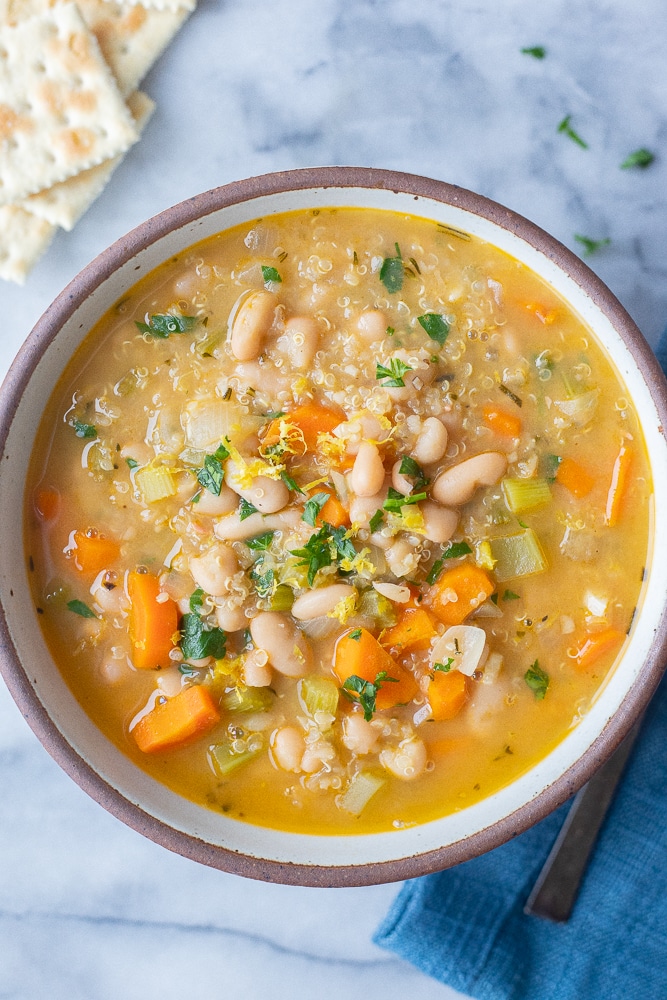
Lemony White Bean Soup with Quinoa
Herby Lemon Jalapeno Pasta with Crispy Chickpea
Lemon Dill Orzo Broccoli Salad
PEAS
There are three types of spring peas; snow peas, sugar snap peas and garden peas. Snow peas are the flat looking peas that are used often in stir frys. Sugar snap peas are more rounded in shape and usually have larger, plump peas inside. Garden peas are what you are usually eating when you buy a bag of frozen sweet peas.
I love growing sugar snap peas in the garden to munch on raw, throughout the summer, and they are also great for adding fresh to salads. I always have a bag of frozen sweet peas around and enjoy throwing them into pastas or using them as a veggie side dish.
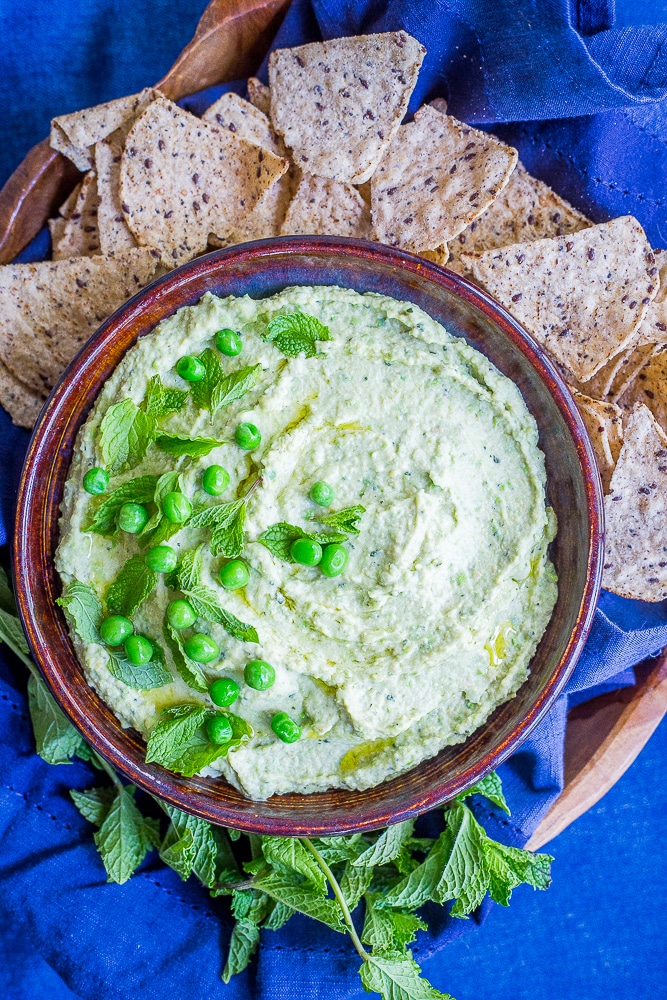
Lemony Broccoli and Sweet Pea Salad
Watercress Pesto Pasta with Peas
Roasted Vegetable Gnocchi Sausage Bake
POTATOES
There are quite a few different varieties of potatoes out there, including: russet, Yukon gold, purple and fingerling. I love all types, but probably use russet most often in the kitchen. Potatoes are great ingredients because they’re filling and usually pretty affordable.
Potatoes can be roasted, fried, baked and mashed. They are probably one of the most commonly used vegetables in the United States, thanks to French fries! I love making mashed potatoes as a cozy side dish or browning them up in a skillet for breakfast, like below.
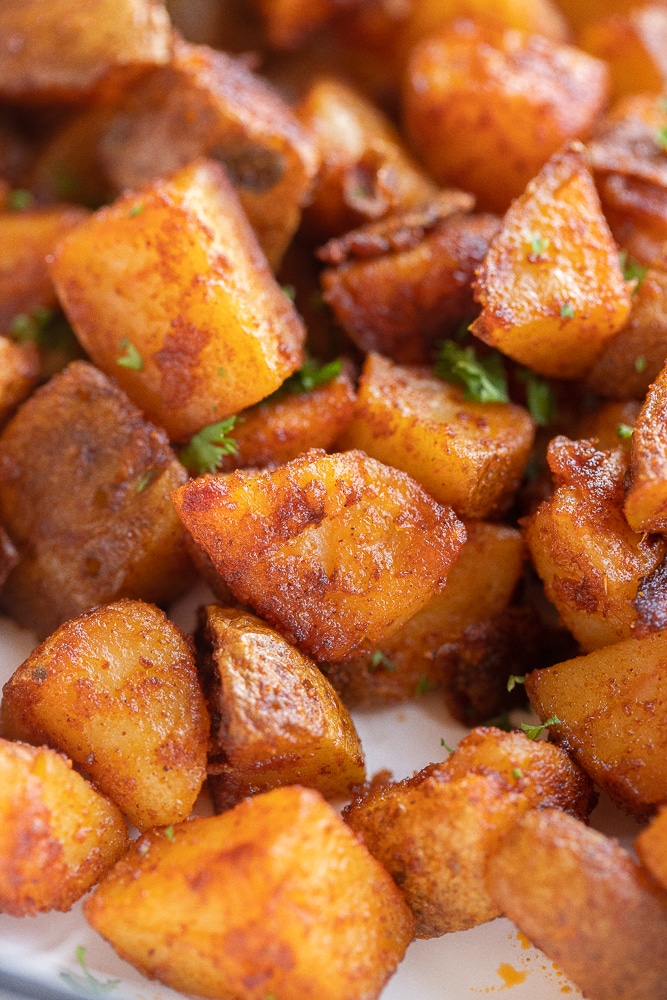
Seasoned Grilled Potato Wedges
RADISHES
Radishes are in the mustard family and come in a few different varieties. Most people are probably used to seeing Red Radishes, which are commonly sold in grocery stores. These radishes are usually eaten raw and have a spicy, crisp taste.
I usually just thinly slice radishes and throw them into salads, but you can also pickle them, grill them or even roast them in the oven. Roasting them mellows the sharp flavor a bit and adds some sweetness.
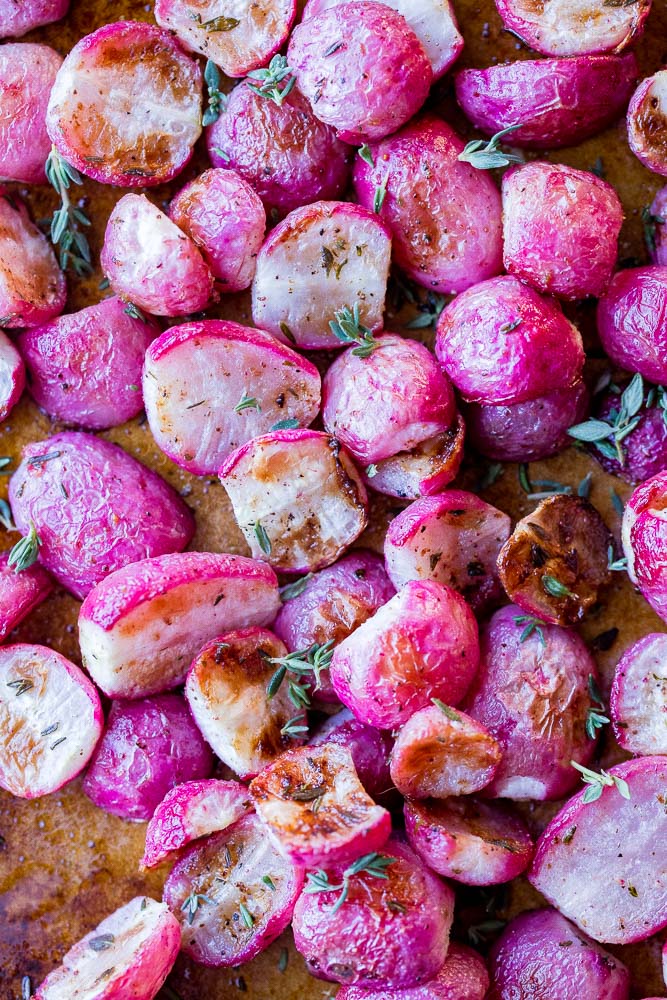
Roasted Radishes with Garlic and Herbs
Veggie Sushi Bowls with Quick Pickled Radishes
Crunchy Ranch Salad with Crispy Quinoa
Roasted Sweet Potato Black Bean Salad with Kale
SWEET POTATOES
Sweet potatoes come in a few different colors, including orange, red and purple. They are root vegetables, meaning they grow under the soil and have greens that grow above. The greens are edible, but the actual potato part is more commonly eaten.
My favorite way to cook sweet potatoes is to roast them. I like to dice them into chunks or slice them into French fry shapes and then toss them with some spices. You can also mash sweet potatoes or bake them like you would a regular potato and add your favorite toppings.
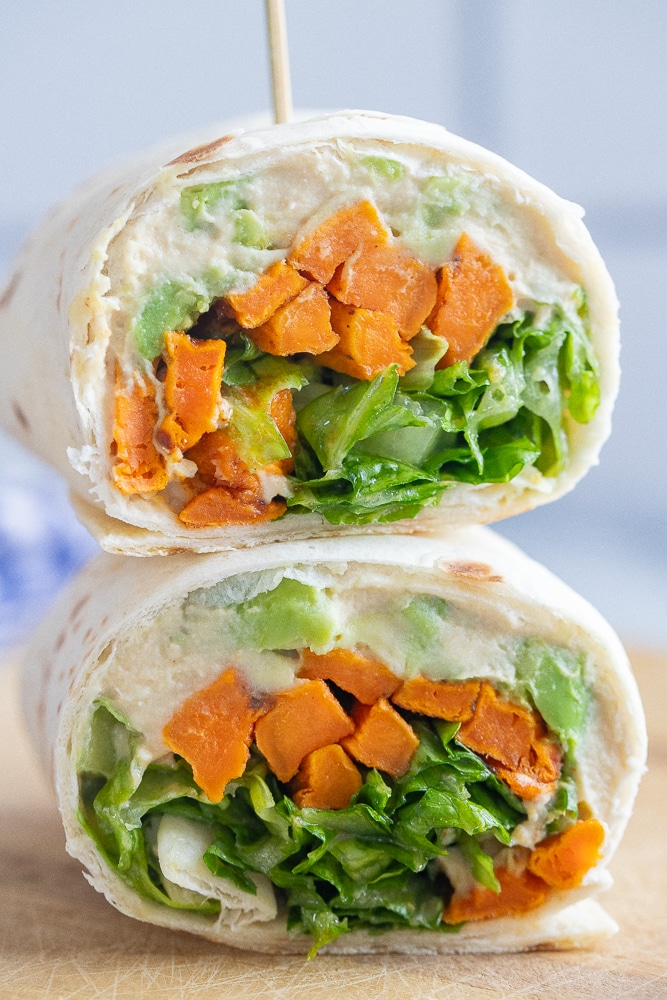
Roasted Sweet Potato Hummus Wraps with Honey Mustard
Sheet Pan Sweet Potato Fajitas with Black Beans

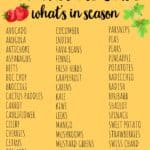
Leave a Reply